Idaho's last Planned Parenthood wants you to know what services it really provides
Published in Health & Fitness
BOISE, Idaho -- Sean, a 56-year-old Boise man, sat in one of Planned Parenthood’s exam rooms in Meridian as he waited for his prescription.
When he came out as bisexual last year, he and his wife decided to pursue a type of open relationship. As Sean began having sexual relationships with different partners, he knew the health center would be the place to go for pre-exposure prophylaxis, or PrEP, antiviral medications that can help prevent the transmission of HIV.
Sean has gone to the clinic, a simple tan and brown building tucked a short drive down Franklin Street off of Eagle Road, for the antivirals for a year. He told the Idaho Statesman he tried to move his PrEP prescription to his primary care physician’s supervision. She was “not comfortable with my lifestyle,” he recalled her telling him, so he has instead stayed with Planned Parenthood.
“I always knew they provided that service and I knew they would be sympathetic,” said Sean, who asked the Statesman to share only his first name to protect his family’s privacy.
Across the hall, Dr. Colleen McNicholas counseled another patient on her options for alleviating menopause symptoms.
The woman, who asked to remain anonymous to protect her privacy at her job, told the Statesman she is now in her 50s and has been coming to Planned Parenthood since she was 16 years old.
“I’m not judged in this space,” she said.
Those are the kinds of stories that are familiar for the employees of the Meridian clinic, Planned Parenthood’s last brick-and-mortar location in Idaho. Its officials took a Statesman reporter and photographer through a tour that began with the back of the building, a less-used part of the clinic for surgeries, and ended with consenting patients’ appointments.
Staff there see dozens of patients a day. The nonprofit has garnered a reputation for its abortion services, as the largest provider of the procedure in the country. But it’s also the largest provider of reproductive health care services in the U.S., according to Planned Parenthood.
Strict bans have barred Planned Parenthood from performing abortions in Idaho since 2023. Staff in Meridian told the Statesman other reproductive health care procedures and resources have always been the vast majority of services they provide and what they’re wholeheartedly throwing themselves into now.
Threats emerged this summer that could cut funding and access to that care for lower-income Idahoans. President Donald Trump signed a law that includes a provision that would bar Planned Parenthood from receiving Medicaid funds for one year. The organization is fighting that law in court. And the U.S. Supreme Court ruled in favor of South Carolina’s Department of Health director in a 2018 case that allows states to legislate Planned Parenthood out of their Medicaid programs — a move that Idaho’s Republican lawmakers could pursue.
Idaho Planned Parenthood officials said they’ve prepared for these fights.
“We’re resilient, we’re innovative, we get out ahead of things,” said Rebecca Gibron, CEO of Planned Parenthood Great Northwest, Hawaii, Alaska, Indiana, Kentucky. “That’s what Planned Parenthood in Idaho represents: We don’t back down to hostile and threatening lawmakers. We fight back, and we stand up for the people that we care for.”
CEO: Attacks are ‘about destroying’ Planned Parenthood
Gibron knows what comes to mind when people think of Planned Parenthood. In many cases, it’s abortion.
The procedure has been illegal in Idaho in nearly all instances since the U.S. Supreme Court’s ruling in Dobbs v. Jackson Women’s Health in June 2022, which reversed Roe v. Wade, the 1970s case preserving abortion access on a federal level. Abortions are now legal in Idaho only when a pregnant person’s life or health is at risk, in cases of ectopic or molar pregnancy, or if the pregnancy resulted from rape or incest that has been reported to law enforcement.
But there are still patients who come to the clinic thinking they may be able to get an elective abortion, according to Ashley, the health center manager. Ashley asked that her last name be withheld to protect her safety.
The majority of Planned Parenthood’s work in Idaho before the reversal of Roe v. Wade was the type of work the clinic still does now: birth control consultations and prescriptions, sexually transmitted infection testing and treatment, placement of long-term contraceptives like intrauterine devices, and OBGYN and pregnancy care visits, McNicholas said. The clinic also offers menopause management and performs vasectomies and breast cancer screenings.
McNicholas said the services have become especially crucial as Idaho has lost one-third of its OBGYNs and several rural maternity wards since the state implemented its abortion bans. The nonprofit has been treating patients across the state via telehealth for several years, which staff said is critical because of Idaho’s geography and the physicians it has lost.
“In a state like Idaho, where we have OBGYNs leaving the state in droves, we are such an important critical access point for folks for their basic sexual and reproductive health care,” McNicholas told the Statesman.
She noted that Planned Parenthood is looking to fill more gaps in advanced gynecological care in Idaho, like cervical cancer screenings. She and Gibron said one of the clinic’s strengths is how quickly it’s able to see patients compared with other local offices, where patients may wait weeks or even months for an appointment. Planned Parenthood accepts walk-ins.
Patients will likely pay more for that care if their insurance won’t cover Planned Parenthood visits, though.
Across the country, half of the nonprofit’s patients use Medicaid, according to reporting from PBS News. In Idaho, only about 15% of patients are on Medicaid, Gibron said. She said the nonprofit stands to lose about $800 million in funding nationwide if it loses its court case over the cuts outlined in the budget reconciliation law.
The Idaho clinic also anticipates state lawmakers to pursue plans to oust Planned Parenthood as a covered provider under Medicaid. Planned Parenthood officials in a news release said they “fully expect that anti-sexual and reproductive health politicians in Idaho will seize upon this opportunity to block patients from accessing Planned Parenthood’s care.”
Gibron said she wouldn’t be surprised “in the least” if Idaho legislators try to remove Planned Parenthood from the state’s Medicaid plan, even as lawmakers have acknowledged a “critical need” for more physicians in the state.
“It was never just about abortion,” Gibron said. “It is about destroying Planned Parenthood. It is about destroying a safety net of a provider that shows up every day for Idahoans in this state, in a state that does not prioritize their need for access to this type of care.”
Any funding losses would come after additional financial blows that shuttered two other brick-and-mortar clinics in Boise and Twin Falls in recent years. Gibron said those closures were prompted in part by the COVID-19 pandemic, cuts to the Title X Family Planning Program during Trump’s first term and the Dobbs decision.
Instead, Planned Parenthood threw its efforts into opening a clinic across the Oregon border in Ontario and setting up a robust telehealth system so anyone in Idaho can access care.
“That is really important in a state like Idaho that is so geographically challenging and that is so rural,” Gibron said.
Abortion rooms repurposed for vasectomies, other procedures
Planned Parenthood’s interior looks much like any other standalone medical clinic’s: a bright waiting room greets visitors when they enter. The tour began through the doors near the check-in desk and to the administrative wing to meet with Gibron, who shared her own history with Planned Parenthood. She was once a patient in her teens, she said, with “questions and a need for information” at a Boise clinic.
In the back of the building is an underused part of the health clinic once built for abortions.
She pointed out that the Meridian clinic was built in the mid-2010s when Planned Parenthood anticipated that Idaho would pass legislation requiring the clinic to meet certain surgical standards to perform the procedure. Though lawmakers never passed such a law, the clinic was built with those specifications in mind, including a 120-square-foot surgical suite that’s much larger than what’s needed for most day-to-day procedures.
Clinic staff said they still use the area for vasectomies and other procedures, and the curtained nearby recovery area is now used for recovery from other procedures, for exams or other purposes.
The east side of the building houses the regular exam rooms, where most patients are seen. A few details in those rooms reveal the clinic’s focus on sexual and reproductive health care, like large jars of free condoms and anatomy posters focused solely on reproductive organs.
In the clinic’s small lab, staff can do rapid testing for HIV and syphilis and on-site testing for female patients for chlamydia, gonorrhea and trichomoniasis — which allows clinicians to prescribe medication and treat patients immediately.
Ashley, the Meridian Planned Parenthood health center manager, said some of the patients her colleagues are seeing are scared — not necessarily because they’ve followed the intricacies of the budget reconciliation bill or the U.S. Supreme Court case, but simply because they know there is ongoing animosity toward Planned Parenthood and an effort to defund it.
“We try to be very transparent and reassuring that we aren’t going anywhere,” she said.
Tracey, a clinician who has been at the health center for three years, told the Statesman that she frequently hears confusion and concern from her patients. Tracey asked that her last name not be used to protect her safety.
She said Idaho’s abortion laws have left patients with questions about whether emergency contraceptives like Plan B or long-term contraceptives like IUDs are legal. Both are.
“Patients aren’t as forthcoming or comfortable with talking about abortion,” she said. “They’re worried about pre- or post-abortion discussions.”
Even patients like Sean, who visits Planned Parenthood for PrEP, or McNicholas’ menopausal patient, both of whom have private insurance, said they worry about the impact of cuts to Medicaid.
McNicholas’ patient said she’s “incredibly spoiled by my medical insurance, and I bring that here on purpose” and called potential cuts “tragic.”
“This place is a godsend for lower-income people,” Sean said. “The state doesn’t care. Right now most of the country doesn’t care.”
©2025 Idaho Statesman. Visit at idahostatesman.com. Distributed by Tribune Content Agency, LLC.
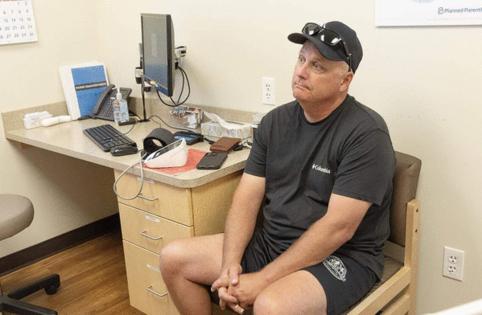
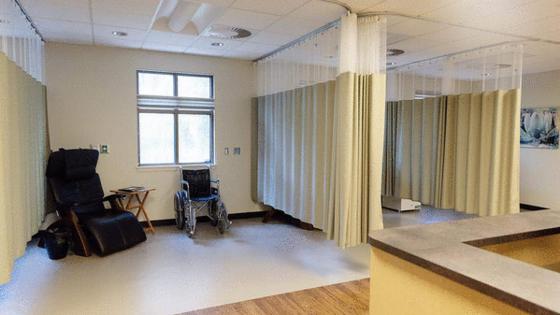
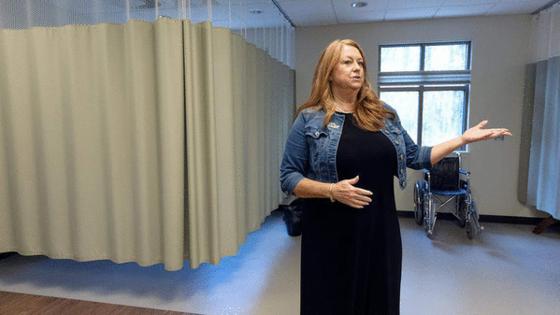
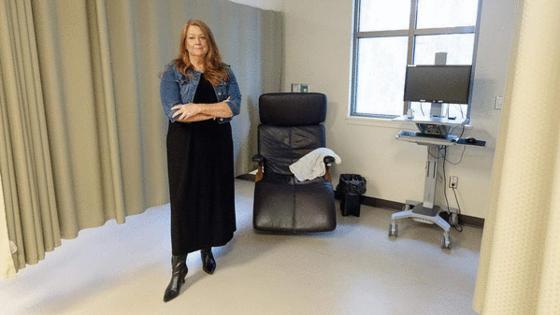
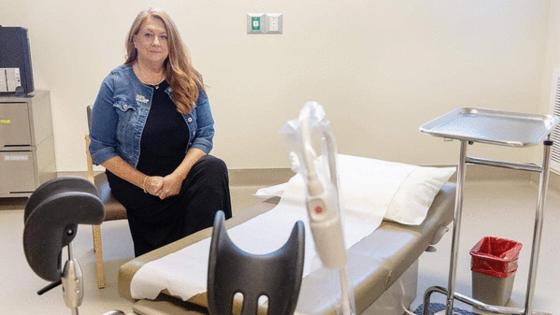














Comments